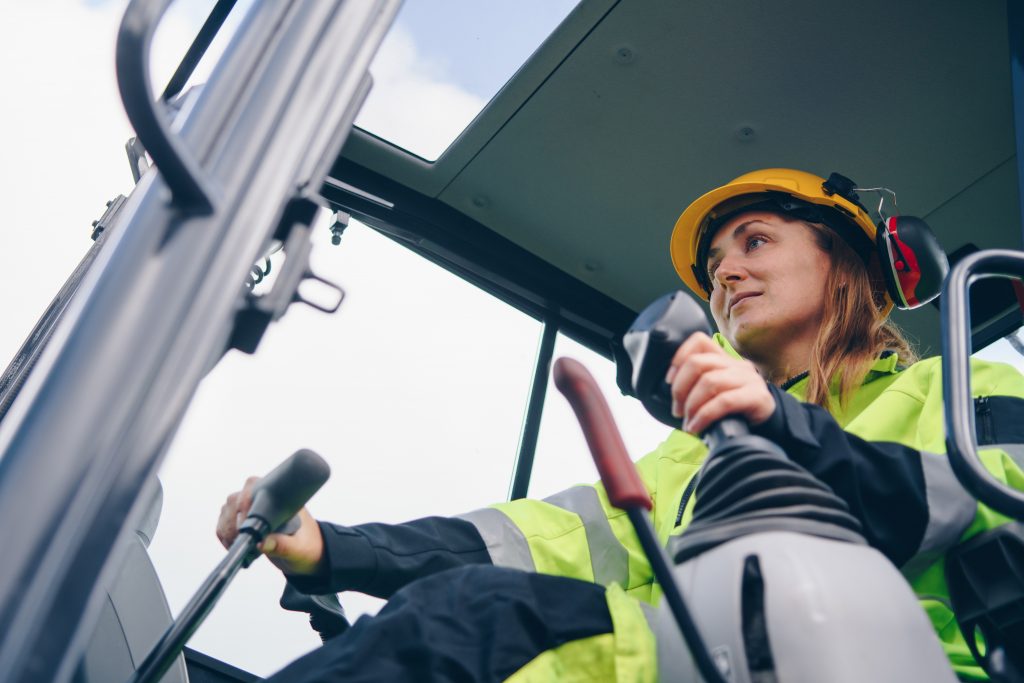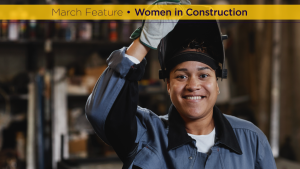If you could snap your fingers and change one thing about the construction industry to encourage more women to join or make it better, what would it be?
That’s the question a panel of female leaders in construction needed to answer during the Women in Construction webinar hosted recently by the Residential Construction Council of Ontario.
“The most important thing I’ve learned about women in construction is that you can’t talk about women in construction without talking about men in construction,” said Maggie Hall from Tridel.
“We are so dependent on this workplace culture which, frankly, is dominated by men. So, if I could do one thing it would be really to have that lightbulb moment where you’re working with men where it’s less focused on the gender of who does it and more of the aptitude and the skills to do it. We always say it doesn’t matter who you are, it matters that you’re hardworking, it matters that you are on time and it matters that you are conscientious and you value the work.”
Emily Lynch, a member of LIUNA Local 183, who works with a highrise builder in downtown Toronto, said work culture is the biggest thing that needs to change.
“I think respect is the biggest part of the umbrella,” she said. “Work culture comes along with that and that starts from the very top, even between guys onsite correcting each other, correcting yourself…My boss corrected me the other day…I said, ‘I’m too weak, I can’t do this.’ He said, ‘Have you seen what you’ve done onsite? You’ve got this.’”
Lisa Pryce from the LIUNA 183 Training Centre agreed the biggest thing is the culture on jobsites.
“There are certain sectors of construction, where I’ve been told…‘We don’t really have women onsite,’ and I’m like, ‘Well let’s try one and let’s see what happens,’” Pryce told the viewers.
“When they see that you are just dedicated, you put your head down and you work like I would tell any of my apprentices, they stop and they say, ‘Are there more like you?’ Not that you’re a woman but that you’re just a hard worker and you are an asset to that company.”

She also said unions need to do more to reach young women.
“There’s a part on us, on stretching our outreach even further than we already do and really pushing boundaries and thinking about things outside the box to really reach out to women and tell stories of individuals like Emily,” she explained.
“(What) we have started to do with our social media is really showing people who look like Emily, who have been through her similar circumstances, who thought, ‘Maybe this isn’t for me. Can I do it? I’m not so sure.’ Then they see someone like her or some of our other apprentices and say, ‘You know what, I can do it.’”
Lynch has had mixed experiences while working on jobsites.
“I have been overcoming and learning about my masking within construction and trying to be one of the guys,” she admitted.
“I’m trying to step away from that, especially more recently now that I’m on a site with an extremely supportive foreman, extremely supportive super and team that backs me up even though I’m the only woman onsite. Every day I come to work and I am respected and treated like a member of the team, which I am…I see a huge change, especially within the last year.”
So how can construction companies create a more supportive workplace culture?
“The importance of top down and having the message be extremely clear from the leadership level all the way down to those who are onsite,” said Hall.
“When women who are on our sites feel as though there is a sense of allyship, that they are safe, that if they need to say something they are not personally worried about the repercussions on their career, on their future psychological or physical safety, that the company is actually going to follow up and do something, that’s what I heard has been the strongest and most important thing that we as a developer can do.”
While negative experiences can get you down, Lynch said it’s important to stay positive.
“I would remind myself I worked so hard to get here,” she noted. “I work 10 times harder than everybody else onsite it feels like a lot of the time, but I know I put a lot of effort in it all the time and I can’t just throw that away. I just tell myself keep going, keep pushing.
“I often say I’m also doing it for the next generation because I wish I had gotten into construction at a younger age,” she added. “I’m doing it to help change the culture and the way people talk to each other.”
Follow the author on Twitter @DCN_Angela











Recent Comments